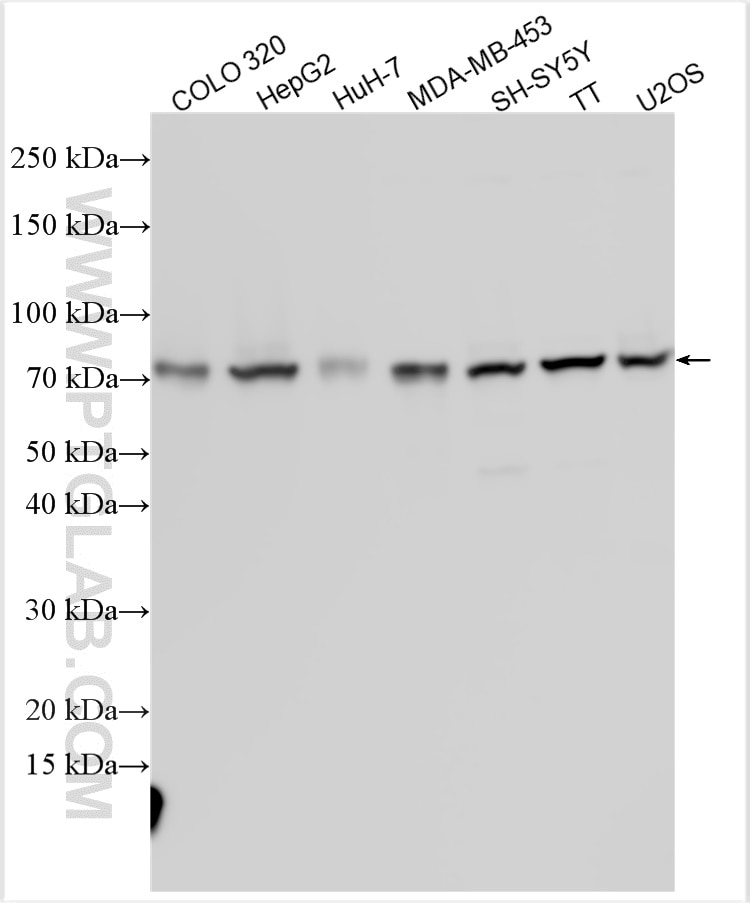Tested Applications
| Positive WB detected in | COLO 320 cells, HepG2 cells, HuH-7 cells, MDA-MB-453 cells, SH-SY5Y cells, TT cells, U2OS cells |
Recommended dilution
| Application | Dilution |
|---|---|
| Western Blot (WB) | WB : 1:1000-1:4000 |
| It is recommended that this reagent should be titrated in each testing system to obtain optimal results. | |
| Sample-dependent, Check data in validation data gallery. | |
Product Information
31914-1-AP targets FAM222A in WB, ELISA applications and shows reactivity with human samples.
| Tested Reactivity | human |
| Host / Isotype | Rabbit / IgG |
| Class | Polyclonal |
| Type | Antibody |
| Immunogen | FAM222A fusion protein Ag36045 Predict reactive species |
| Full Name | chromosome 12 open reading frame 34 |
| Calculated Molecular Weight | 47 kDa |
| Observed Molecular Weight | 70 kDa |
| GenBank Accession Number | BC037221 |
| Gene Symbol | C12orf34 |
| Gene ID (NCBI) | 84915 |
| RRID | AB_3670141 |
| Conjugate | Unconjugated |
| Form | Liquid |
| Purification Method | Antigen affinity Purification |
| UNIPROT ID | Q5U5X8 |
| Storage Buffer | PBS with 0.02% sodium azide and 50% glycerol, pH 7.3. |
| Storage Conditions | Store at -20°C. Stable for one year after shipment. Aliquoting is unnecessary for -20oC storage. 20ul sizes contain 0.1% BSA. |
Background Information
Family with sequence similarity 222 member A (FAM222A, also known as C12orf34) is associated with the progress of Alzheimer's disease (PMID: 31964863; 37092222). It is also a novel key determinant of endothelial biology and angiogenesis (PMID: 37942611).
Protocols
| Product Specific Protocols | |
|---|---|
| WB protocol for FAM222A antibody 31914-1-AP | Download protocol |
| Standard Protocols | |
|---|---|
| Click here to view our Standard Protocols |



